In a sweeping wave of court rulings that sent shockwaves through national politics, Federal Judge Claudio Bonadio this morning ordered the arrest and detention of key Kirchnerite officials, before requesting that former president and Senator Cristina Fernández de Kirchner be charged, stripped of her congressional immunity from prosecution immediately and placed in custody under pre-trial detention.
On an explosive morning for Argentine politics, a number of key Kirchnerite figures found themselves waking up to the prospect of immediate detention or house arrest, among them former foreign minister Hector Timerman and ex-vice-presidential nominee Carlos Zannini.
Bonadio made his decision as part of the investigation into late AMIA special prosecutor Alberto Nisman’s accusation that former government officials sought to cover up Iran's alleged involvement in Argentina's worst terrorist attack at the AMIA Jewish community centre through the controversial Memorandum of Understanding (MoU), a pact with Iran agreed in 2012 during the time Fernández de Kircher’s administration ruled the nation.
The former president and senator for Buenos Aires province has repeatedly denied the allegations and says that President Mauricio Macri is politically manipulating the judge who ordered her to appear in court as part of the case.
"It is a great legal nonsense," Fernández de Kircher said in October regarding the case. "I think the most important thing I have to say is that the only betrayal of the country is the use of the judiciary to persecute opponents "
According to judicial sources, in his ruling Bonadio reasoned that the former president may use her contacts to “obstruct the case.”
Fernández de Kirchner currently has parliamentary immunity after being elected as a senator in the last elections in October. Now, the order of impeachment will be analysed by the Senate. Any decision must be endorsed by two-thirds of those present.
Orders
The developments began early in the morning when Bonadio ordered the arrest of Zannini – a former legal and technical secretary in CFK’s administration and ally of former president Néstor Kirchner – as well as Kirchnerite picket leader Luis D’Elía and a key figure from the Islamic community in Argentina, Jorge "Yussuf" Khalil.
All three were detained this morning.
D’Elia, who was arrested at his home at 7am this morning in Isidro Casanova, Buenos Aires province, shouted to reporters that the government was seeking “to humiliate the opposition" as he was detained.
"I do not mind going to jail because this is a political cause, [they] want to humiliate all the opposition," he said, before shouting: "Enough with the Macrista dictatorship."
Zannini, in turn, was detained in Rio Gallegos in Santa Cruz.
Bonadio also ordered that former foreign minister Hector Timerman be placed under preventative detention through house arrest. He was granted that benefit due to his poor state of health.
Finally, Bonadio requested the pre-trial detention of former head of the Federal Intelligence Agency (AFI) Oscar Parrilli and national deputy Andrés "Cuervo" Larroque, also forbidding the duo to leave the country.
Backround
The 1994 bombing of the Argentinean-Israeli Mutual Association (AMIA) Jewish community centre in Buenos Aires killed 85 people, with hundreds more injured. The case has moved forward only in fits and starts in Argentina's judiciary and has been frustrated by Iran's refusal to cooperate.
Nisman, the special prosecutor investigating the case, was found dead of a gunshot wound to his head in his apartment in 2015, days after he made the claims against the former president and a matter of hours before he was due to present his claims before Congress. Experts concluded last month that his death had been the work of two individuals and was not a suicide.
He claimed to have uncovered an alleged conspiracy headed by the former president that sought to clear five high-ranking Iranian suspected of masterminding the bombing. Nisman cited the Memorandum of Understanding signed in 2013 with Iran as an evidence of his allegations. The deal was approved by Congress in the same year but later declared unconstitutional by a federal court in 2014.
- TIMES/AGENCIES








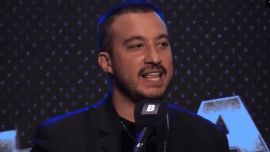

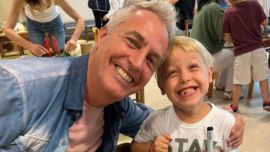

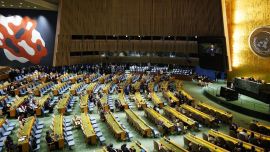

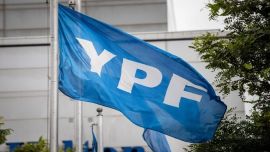
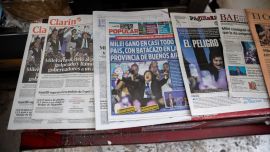
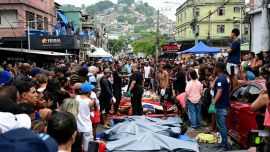
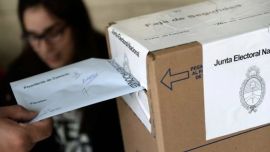
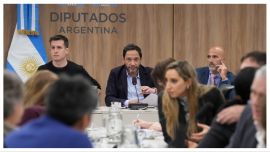

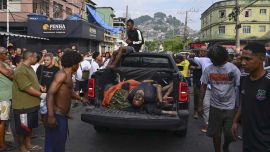
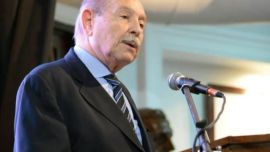
Comments